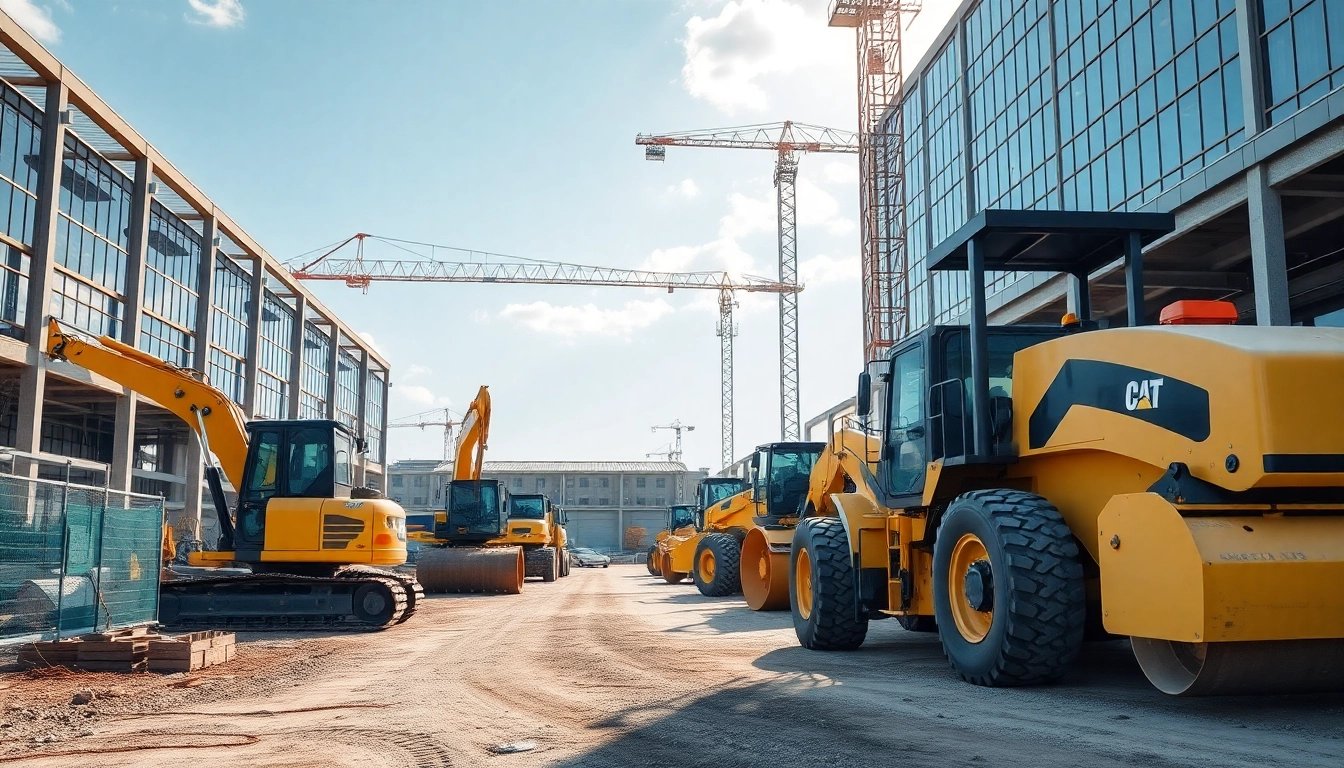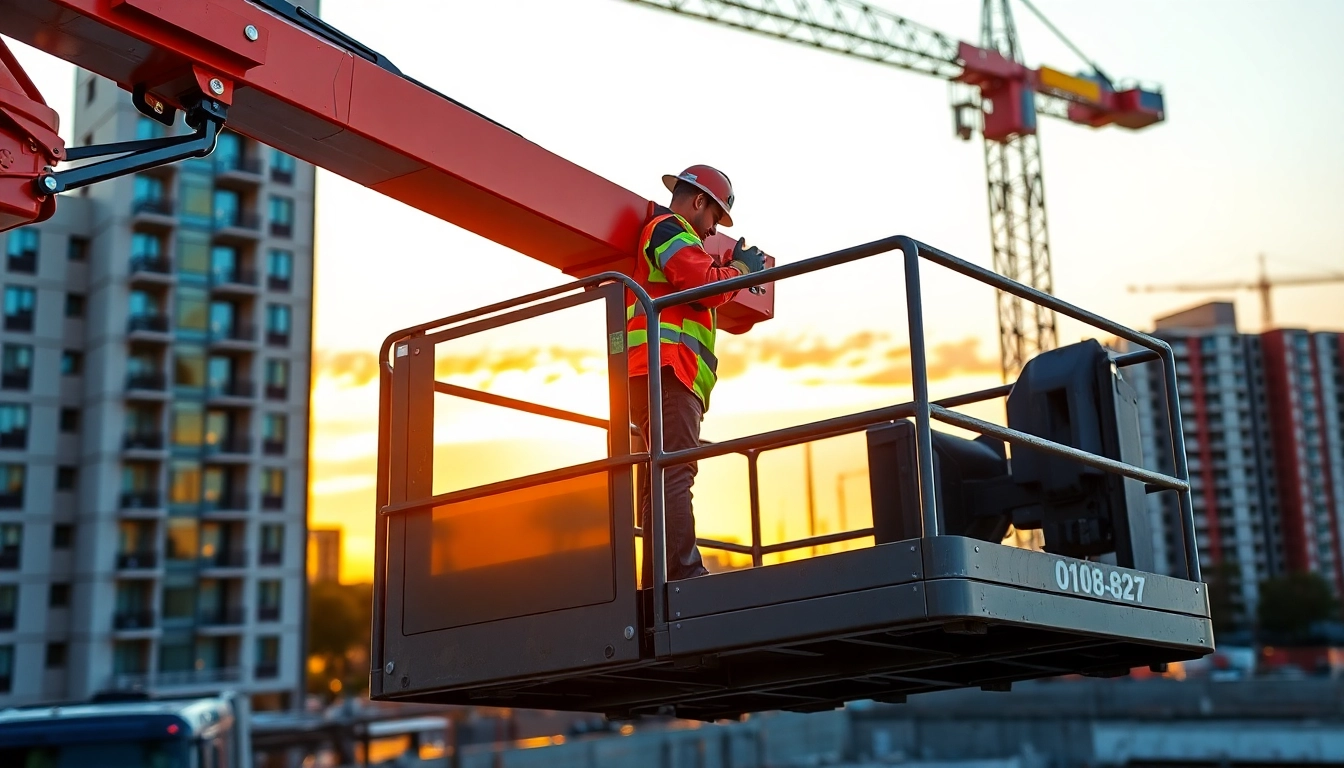Maximizing Construction Success Through Equipment Rental: An In-Depth Guide
In the dynamic world of construction, efficiency, safety, and cost management are crucial to the success of any project. Whether you’re managing a small renovation or a large-scale infrastructure development, access to the right machinery can significantly impact outcomes. Construction equipment rental has emerged as a strategic solution, offering flexibility, up-to-date technology, and economic advantages. For firms seeking to optimize their resources and ensure project excellence, understanding the nuances of equipment rental is essential. If you’re exploring how to leverage this approach effectively, construction equipment rental provides a comprehensive pathway to elevate your building projects.
Understanding the Benefits of Construction Equipment Rental
Cost Efficiency and Budget Management in Construction
One of the primary drivers behind choosing equipment rental is financial prudence. Purchasing construction machinery involves substantial capital expenditure, ongoing maintenance costs, insurance, depreciation, and storage issues. In contrast, renting offers predictable expenses aligned with project timelines, enabling firms to maintain tighter control over budgets. Rental costs typically include delivery, maintenance, and support, reducing unforeseen expenses and bulk capital investments.
Additionally, rental agreements allow companies to allocate resources more flexibly, avoiding idle equipment during downtime. This financial agility can be critical for maintaining competitive bids and ensuring profitability. Case studies have shown that construction firms that leverage rental options experience 20-30% reductions in equipment-related costs, freeing funds for other project-critical needs.
Access to Latest Machinery and Technology
The construction industry is rapidly evolving, with innovations in machinery advancing safety, efficiency, and environmental compliance. Renting enables companies to access state-of-the-art equipment without the burden of depreciation or obsolescence. Rental providers frequently update their fleets, offering the latest models equipped with smart technology, telematics, and energy-efficient systems.
This access translates into improved productivity, enhanced safety features, and reduced maintenance downtime. For instance, modern excavators with IoT capabilities can provide real-time performance data, enabling proactive maintenance and minimizing delays. Keeping pace with technological advancements ensures your projects benefit from the best tools available, ultimately leading to higher quality and faster completion times.
Flexibility for Various Project Sizes
Construction projects vary widely in scale and scope, from minor refurbishments to mega-infrastructure developments. Equipment rental offers unmatched flexibility, allowing firms to tailor machinery procurement to project needs. You can rent specific equipment for a short duration during peak phases or secure long-term contracts for extensive projects.
This adaptability is crucial for optimizing operational efficiency. For example, a builder might rent compactors and concrete mixers during the initial phases and switch to heavy-duty excavators later. Such flexibility ensures that resources are allocated appropriately, reducing waste and improving project flow.
Choosing the Right Construction Equipment for Your Needs
Assessing Project Requirements and Equipment Specifications
The first step in successful equipment rental is a thorough assessment of your project’s specific needs. This involves analyzing factors such as project size, location, timeline, and particular tasks involved. For example, urban developments might require compact, maneuverable machinery, whereas large rural sites might benefit from high-capacity excavators.
Understanding technical specifications—such as lifting capacity, power output, and safety features—is vital. Collaborating with rental providers who offer expert advice can help identify suitable equipment, ensuring compatibility with site conditions and project goals. Detailed planning minimizes waste and enhances project efficiency.
Expert Tips for Selecting Durable and Safe Machinery
Choosing reliable, durable equipment is essential for minimizing downtime and maintaining safety standards. Always verify the condition and maintenance history of rental units, preferably selecting reputable suppliers with strong service records.
Safety features, such as advanced braking systems, operator protection guards, and ergonomic controls, are non-negotiable. Suppliers that invest in regularly servicing and updating their fleets—like those offering modern telematics-enabled machinery—provide added reassurance. Conducting site-specific risk assessments prior to equipment selection can prevent accidents and ensure compliance with safety regulations.
Renting From Trusted Equipment Suppliers
Partnerships with established rental providers are critical for peace of mind and operational success. Trusted suppliers offer comprehensive support—including delivery, setup, maintenance, and technical assistance. They also provide detailed training for operators, reducing safety hazards and improving productivity.
Research the supplier’s reputation, review customer feedback, and assess after-sales support. Leading rental companies in the UK such as Sunbelt Rentals or SER offer extensive fleets of modern, well-maintained machinery, ensuring your project has reliable access to quality equipment at all times.
Best Practices for Effective Equipment Rental Management
Booking, Delivery, and Maintenance Coordination
Efficient management begins with clear planning and communication. Establish a streamlined booking process, ensuring equipment is available when needed. Confirm delivery schedules and delivery conditions to prevent delays. Many rental providers offer real-time booking platforms, enabling quick adjustments as project scope evolves.
Maintenance is a collaborative effort; routine inspections and prompt reporting of issues keep equipment in optimal condition. Many suppliers include maintenance as part of the rental agreement, reducing your logistical burden. Tracking maintenance records and schedules helps prolong equipment lifespan and guarantees safety compliance.
Ensuring Compliance with Safety Standards
Adherence to safety standards from the outset reduces accidents and aligns with legal requirements. Maintain comprehensive safety protocols, including operator training, PPE requirements, and adherence to machinery-specific guidelines. Rental companies often provide safety manuals and training resources—leverage these to uphold site safety.
Regular safety audits and inspections ensure ongoing compliance. Creating a safety-first culture reduces incident risks and protects personnel and equipment, ultimately preventing costly delays.
Tracking Equipment Usage for Optimal Performance
Utilize telematics and monitoring systems to track equipment usage, performance metrics, and fuel consumption. Data analytics can identify inefficiencies, facilitate predictive maintenance, and optimize operational hours. This proactive approach minimizes downtime and extends equipment lifespan.
Implementing digital tracking tools supports accountability, helps manage rental costs, and provides insights for future procurement decisions.
Case Studies: Successful Construction Projects Using Equipment Rental
Urban Development with Heavy Machinery Rental
In London’s City District regeneration project, the rental of excavators, loaders, and compactors enabled the construction firm to meet tight deadlines efficiently. Access to modern equipment with advanced safety features reduced accident rates by 15%. The flexible rental arrangements allowed for scaling machinery use according to project phases, optimizing resource allocation.
Infrastructure Projects with Cost-Effective Solutions
A major UK bridge construction utilized rental cranes, pile drivers, and concrete mixers. The cost savings from rental—compared to purchasing—totaled over £2 million, which was re-invested into environmental sustainability initiatives. Rental providers’ comprehensive support minimized logistical challenges, ensuring project delivery on time and within budget.
Innovative Building Techniques Enabled by Equipment Flexibility
An innovative student housing development employed drone-assisted surveying, modular construction equipment, and 3D modeling. Renting specialized machinery allowed rapid adaptation to complex designs, reducing construction time by 20%. The real-time data feed from IoT-enabled machines helped project managers make informed decisions, enhancing overall efficiency.
Future Trends in Construction Equipment Rental
Integration of Smart Technology and IoT
The future of equipment rental is poised for transformation with the integration of smart technology. IoT sensors embedded in machinery provide real-time data on performance, location, and maintenance needs, enabling predictive analytics. This evolution leads to higher productivity, lower downtime, and improved safety monitoring.
Innovators are also developing remote operation capabilities, allowing operators to control machinery from a safe distance, reducing labor costs and safety hazards.
Green and Sustainable Machinery Options
As environmental regulations tighten, demand for eco-friendly equipment increases. Electric-powered machinery, hybrid models, and machines utilizing alternative fuels are becoming more prevalent in rental fleets. These options reduce greenhouse gas emissions, noise pollution, and operational costs.
Adopting sustainable equipment aligns with corporate social responsibility and often qualifies projects for green building certifications, such as BREEAM or LEED.
Digital Platforms for Seamless Rental Processes
The evolution of digital platforms is revolutionizing how equipment is rented and managed. Online booking portals, mobile apps, and integrated APIs facilitate quick, transparent, and flexible rental transactions. These systems offer real-time inventory updates, instant quotes, and automated documentation, simplifying procurement and project planning.
Furthermore, blockchain technology is emerging to enhance transparency, track equipment provenance, and streamline financial transactions across the supply chain.



